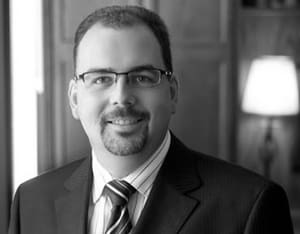Point: Kevin L. Boonstra
The Canadian Charter of Rights and Freedoms recognizes freedom of conscience and religion as a fundamental individual right. This makes justifying the protection of religious liberty unnecessary—except when arguing that freedom of religion ought to be broadly defined and protected in any given circumstance.
To demonstrate the conceptual difficulty for Christians of an individualist protection of religious liberty, consider the issue of polygamy that is currently confronting the court in British Columbia. The members of the community of Bountiful claim that their religion requires them to engage in polygamous marriages. Currently, this is offensive to our criminal law. It is also offensive to Christian teachings in respect of the family. What position should a Christian take on this practice?
It is not appropriate to protect religious practices only when they conform to Christian conceptions of morality. To do so is to impose religious doctrine, which runs contrary to protecting religious liberty. As exhibited in the story of the Garden of Eden, each person has the right to determine whether to follow God or error and we must respect that choice.
If (and it may be a very large “if”) the polygamous practices of Bountiful are truly inspired by the religious beliefs of individuals, I would suggest we should defend the right of consenting adults to enter these relationships irrespective of how offensive we find them. This is based on the same principle underlying freedom of expression: namely that we can, and should, defend someone’s right to say something, no matter how strenuously we may disagree with them.
There may be “victims” of polygamy. I am no expert on what happens in the polygamous communities. It may be that the free will of adults is removed from them by compulsion, and some polygamous marriages may not only involve consenting adults. It may also be, as has been alleged, that children are “married off” when too young to make their own decisions. These factors, if true, do not militate against protecting individual’s rights and decisions based on their religious beliefs. It militates in favour of protecting the individual rights of the victims not to participate in the practices of their community until they are of an age, and understanding to make their own decision to do so.
If freedom of religion is a collective right and subject to theological teachings, we may be less able to protect the potential victims of religious communities. It is only by recognizing that freedom of religion must be enjoyed by each individual, as an individual, that religious liberty can truly be protected in the modern state.
Counterpoint: Peter Stockland
Jesus warned that not everyone who cries “Lord, Lord” will merit the kingdom of Heaven. Canadian society must take the cue and remind all creeds that not everyone who cries “faith, faith” will merit Charter guarantees of religious freedom.
True adherence to religious doctrine is always born in the individual heart. Only an act of singular will produces a reaction of genuine commitment. Anything else isn’t faith. It’s fear.
What is born in one, however, must be lived out among many. The Desert Fathers set up shop far from the madding crowd, but to do so even they formed their own communities. Individual believers and societies aren’t just an intersection. They are a nexus.
Out of their linkages come the deep structures of Canadian society. What also comes, as a consequence, are the deep afflictions that follow the pure individualist fallacy. Chief among such ills is the travesty that because all men are created equal, all beliefs held by all men are equally equal.
Freedom obliges forbearance, of course, and there is nothing more impertinent—or feckless—than telling a man to point his nose at the moon when his soul is directed to the stars. But civilization requires more than a bare minimum consensus on common ground rules. It demands the discipline to determine the common good at its best.
When Jesus told us to harmonize the apparent discord between faith and state by giving to God what is God’s and to Caesar what is Caesar’s, he wasn’t just performing an aphoristic coin flip. He was setting a taxing exercise of discernment respecting the reality that Caesar does actually get a say in determining what belongs to him.
In Deus Caritas Est, Pope Benedict XVI is categorical that the Church “cannot and must not” seek to build the perfectly just society. That, he points out, is the province of politics. A prime purpose of the Church, however, is to have faith burnish reason, and thereby form the conscience of the polis so justice is paramount. Necessarily, if it is to perfect reason, faith itself must be sound, not merely sincere.
Sound policy, in turn, requires a resounding “no” to practices such as polygamy that, whether or not they directly harm the individual actors involved, affront the deepest structures of Canadian society. Such structures, including the many freedoms guaranteed by our Charter, come from the first freedom to seek God’s just order. They will never come from those who just cry “faith, faith” in order to have their own ways and the Kingdom of heaven, too.


